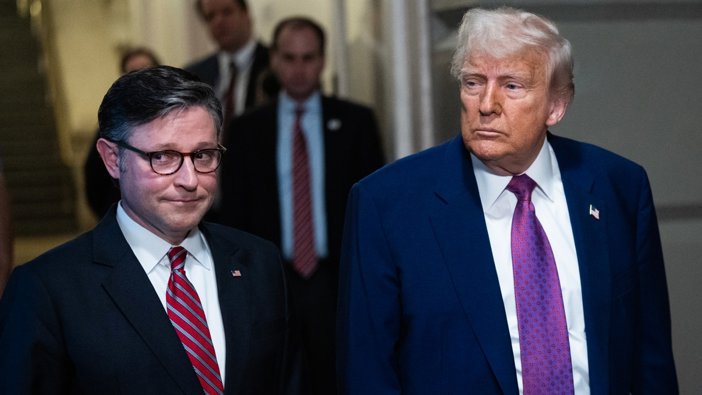
Senate Strips Gun Tax Relief from Trump’s Major Bill
Senate strips gun tax relief from Trump’s major bill as Republicans debate key changes and race to meet July 4 deadline.
Senate Removes Gun Provision from Sweeping Reform Bill
Efforts to ease regulations on certain firearms faced a setback as Senate Republicans removed a provision from President Donald Trump’s wide-reaching legislative package that would have eliminated taxes and registration requirements for short-barrel rifles, shotguns, and suppressors. The measure, championed by Sen. Roger Marshall of Kansas and Rep. Andrew Clyde of Georgia, was intended to lift the $200 federal tax and Bureau of Alcohol, Tobacco, Firearms and Explosives registration on those weapons by amending the National Firearms Act (NFA).
The decision to remove the gun tax relief followed a late-night ruling by the Senate parliamentarian, who determined that policy changes affecting the NFA could not be included under the Senate Finance Committee’s portion of the bill. This provision, part of the Stop Harassing Owners of Rifles Today (SHORT) Act, was among several policies stripped from the bill for not meeting the requirements of the budget reconciliation process, which allows for expedited Senate passage by avoiding the 60-vote threshold.
Sen. Marshall called the move a setback but pledged to continue working within Senate rules to protect Second Amendment rights. “The rights of gun owners must be respected,” he emphasized, urging colleagues to revise the language and restore the measure if possible. Rep. Clyde criticized the parliamentarian’s decision, arguing that taxation and registration under the NFA are fundamentally connected. Both lawmakers vowed to seek alternative ways to advance the reforms.
House-Senate Standoff as Key Issues Remain Unresolved
The removal of the gun provision is one of several contentious changes as the Senate continues to debate Trump’s so-called “big, beautiful bill”—a legislative effort tackling taxes, immigration, energy, defense, and the national debt. Top House Republicans, including Republican Study Committee Chair August Pfluger and Budget Committee Chair Jodey Arrington, have publicly warned Senate counterparts against making substantial modifications. They argue that the House version was crafted through complex negotiations and any major changes risk unraveling its delicate political balance.
Arrington described the situation as precarious, warning that pushing too far could “imperil the most important and most consequential bill—with the greatest set of conservative reforms in my lifetime, if not 100 years.” Senate GOP leaders, facing a slim majority, insist their proposed revisions are necessary to ensure passage in the upper chamber. Speaker Mike Johnson, R-La., has been in close coordination with Senate leaders and the White House as the process unfolds.
The bill passed the House by just one vote in late May, underscoring its fragile support. Senate negotiations remain stalled over issues such as Medicaid funding, state and local tax (SALT) deductions, and other tax-related items. Some House Republicans have expressed strong opposition to possible cuts in federal Medicaid assistance, warning that such changes could cost crucial votes needed for final passage.
July 4 Deadline Looms as GOP Debates Strategy
The self-imposed July 4 deadline for finalizing the bill is under increasing strain. While President Trump insists that the House must be ready to send the bill to his desk before Independence Day, several Republicans stress that accuracy and thoroughness should take precedence over speed. “I think it’s more important to get the bill correct than it is to get it fast,” said Rep. Scott Perry, R-Pa., reflecting the view of multiple GOP lawmakers who favor a careful approach even if it means missing the deadline.
Speaker Johnson acknowledged the possibility that the deadline may slip but remains determined to keep the process on track. The Senate is expected to work through the weekend to resolve outstanding differences, while House members have been told to remain flexible and be prepared to return to Washington on short notice. The urgency is heightened by looming fiscal deadlines, as the U.S. is projected to run out of cash to pay its debts by summer—an issue Republicans have tied to raising the debt limit in this package.
As negotiations continue, President Trump maintains pressure on Congress to act quickly, stating publicly that while more time could be taken if absolutely necessary, the preferred goal remains passage by July 4. The outcome of these talks will not only determine the fate of key tax and spending policies but also test the unity and resolve of the Republican majority in both chambers.






